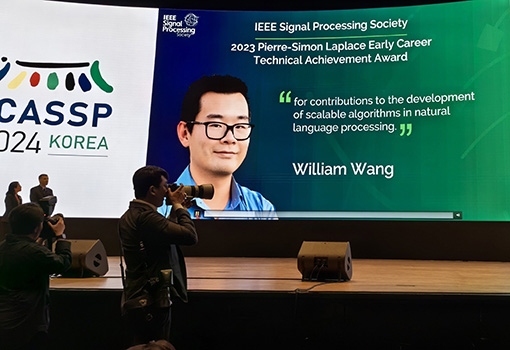As artificial intelligence continues to boom, scaling algorithms to ever-increasing data sets also becomes a bigger hurdle. Such is the case in the domain of natural language processing (NLP), or, the effort to get machines to understand and communicate with human language (think: ChatGPT, search engines and other text-based modalities).
“A key challenge in this domain is the tradeoff between scalability and accuracy,” said UC Santa Barbara computer scientist William Wang, who specializes in NLP. “While faster algorithms often compromise accuracy, more accurate models tend to be slower. Achieving a balance between these two aspects is critical, yet challenging.” Thanks to the diversity of human expression, AI language models can often trip over things like ambiguity, slang, sarcasm, irony, translations, multiple meanings, and other vagaries of human speech, or the models can take too long in interpreting them to be useful.
Wang’s considerable work to develop scalable algorithms that are both swift and accurate couldn’t be more necessary. And for his efforts, he has been awarded the Institute of Electrical and Electronics Engineers (IEEE) Signal Processing Society’s (SPS) Pierre-Simon Laplace Early Career Technical Achievement Award. He recently received this award in April, in Seoul, Korea.

William Wang at an event in South Korea recognizing his award.
